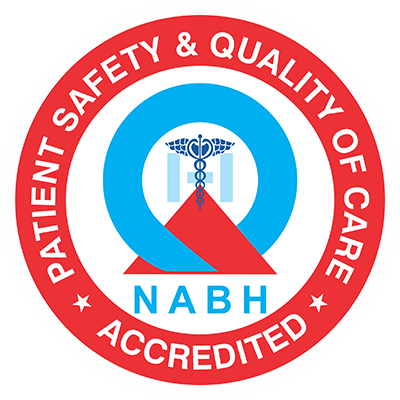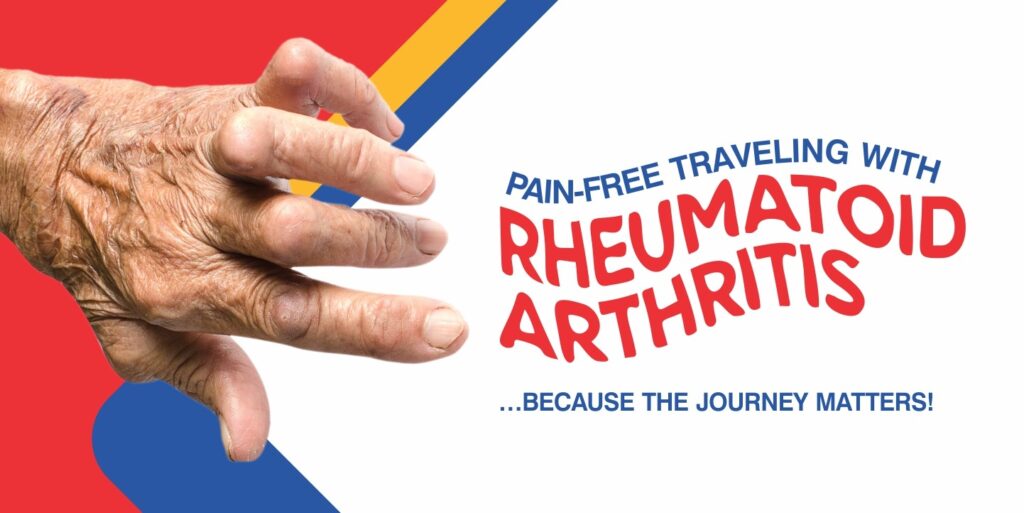Travelling has a magical way of opening our eyes to the wonders of the world, offering a mosaic of cultures, landscapes, and experiences. It’s more than just moving from one place to another; it’s a journey that rejuvenates the soul and refreshes the mind. Whether it’s the allure of ancient cities, the tranquillity of secluded beaches, or the thrill of adventurous escapades, everyone would agree that travel has the power to heal and invigorate.
But for those navigating the world with Rheumatoid Arthritis (RA), travel can pose unique challenges, depriving them of the joy of fully submitting themselves to the myriad wonders it offers.
Rheumatoid Arthritis is an autoimmune disorder that causes joint pain, swelling, and stiffness. Travelling can exacerbate these symptoms, particularly due to prolonged sitting, changes in climate, and disrupted routines.
Yet, with the right approach and preparation, the joy of discovery is well within reach, letting RA warriors embrace the thrills of travel without the pain. The key to a successful and enjoyable trip lies in thoughtful preparation and self-care strategies.
- Planning ahead – The foundation of stress-free travel
Start by choosing a destination that aligns with your comfort needs. Consider climate, as extreme temperatures can aggravate RA symptoms. Research the healthcare and transportation facilities available, just in case.When booking accommodations, inquire about accessibility features like elevators and ramps. In flights, book aisle seats for easier movement. Better still, opt for seats in the front or emergency rows for more legroom. - Packing smart: Your travel arsenal
Packing appropriately can significantly impact your travel experience.
Medications: Carry enough for the duration of the trip, plus a few extra days in case of delays. Keep them in your carry-on luggage.
Comfort items: Include heat packs, cold packs, and a travel pillow to alleviate joint discomfort.
Supportive footwear: Comfortable shoes are crucial. Carry compression socks – in your hand luggage – for long flights to aid better blood circulation.Lightweight luggage: Opt for a suitcase with wheels to reduce the strain on your joints. - Staying mobile: Movement is key
During long journeys, make sure to move at set intervals. Set an alarm to remind yourself. On flights or road trips, stretch and change positions frequently to prevent stiffness. When exploring your destination, balance activity with rest. Don’t hesitate to use a wheelchair if needed. Sit out a particularly strenuous adventure in order that you can participate in most other things on the itinerary. Do not feel awkward or disappointed for having to do so. - Managing medication: Stick to the schedule
Time zone changes can disrupt your medication schedule. Plan ahead to adjust the timing of your doses accordingly. Always keep your medication in its original packaging, along with a copy of your prescription and a doctor’s note. Research on equivalent medications available in the region of your visit. Identify medical stores close to where you are staying or look up online suppliers. - Nourishing your body: Diet and hydration
Maintain a balanced diet while travelling. Some foods can exacerbate RA symptoms, so be mindful of your dietary triggers. Stay hydrated, especially during flights, as dehydration can worsen joint pain. - Coping with flare-ups: Be prepared
Despite precautions, flare-ups can occur. Pack a ‘flare-up kit’ with items like pain relievers, topical creams, and a list of your medications. Give a heads-up to your doctor about your travel plans, and inform him/her that you would be calling from abroad in case of a severe flare-up. - Embracing mindfulness and relaxation: Stay calm and positive
Travel can be stressful, and stress is a known trigger for RA symptoms. So, practice relaxation techniques like deep breathing or meditation. Don’t over-schedule your days; allow time for rest and relaxation. - Seeking support: Don’t go it alone
Travel with a companion who understands your needs. If travelling alone, don’t hesitate to ask for help when needed. You’ll see that even strangers are more than willing to assist. Keep the hotel staff informed about your issue and have at least one person on speed dial. - Insurance and documentation: Better safe than sorry
Ensure you have travel insurance that covers pre-existing conditions. Carry a medical ID card that details your condition and medication regimen. - Visiting your doctor: Get an all-clear
A visit to your caregiver a couple of days prior to your departure will help you stock up on the essential and emergency medications, and is a good way to reassure yourself that you are fit and capable of enjoying your holiday to the fullest.Travelling with Rheumatoid Arthritis requires extra planning and care, but it’s entirely possible to have a comfortable and enjoyable trip. By preparing thoroughly, packing wisely, and listening to your body, you can explore new places without letting RA hold you back. Remember, every journey is an opportunity for beautiful experiences and memories, and RA doesn’t have to be a barrier to the world’s wonders.



